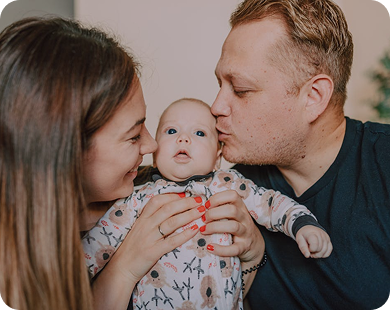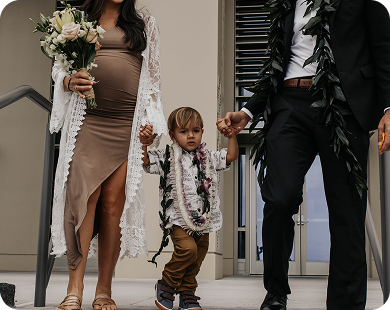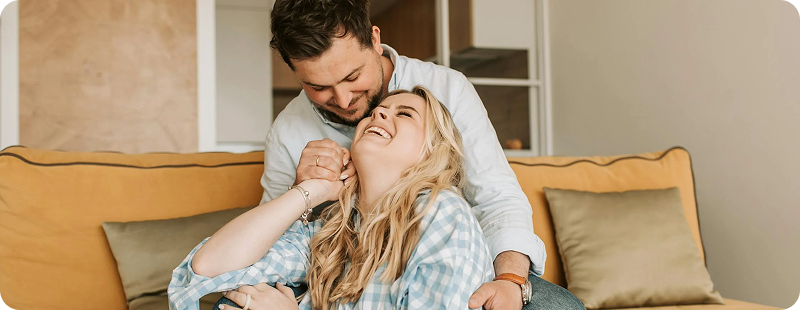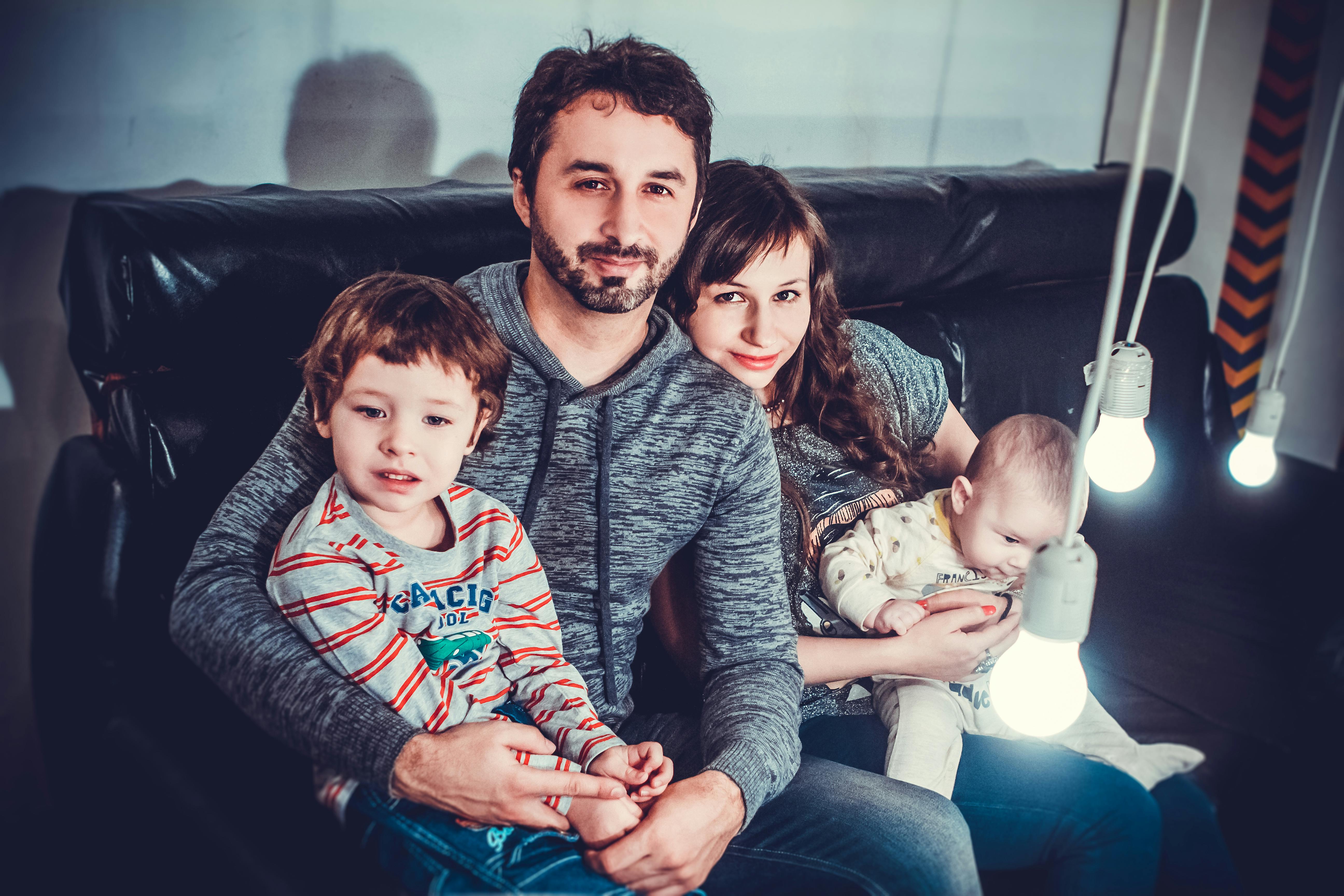Deciding whether to tell your child about their donor conception is one of the most personal decisions you'll face as a parent. While there's no universally right answer, research shows that most families benefit from age-appropriate honesty, and many children appreciate knowing their full story when shared with love and openness.
Understanding the Disclosure Decision
When you're considering IVF with donor eggs or donor sperm, the question of disclosure often feels overwhelming. You might wonder: Will this information hurt my child? When is the right time? How will they react?
The truth is, there's no perfect formula. However, fertility counselors and child psychologists increasingly recommend disclosure, particularly when done thoughtfully and age-appropriately. Children conceived through donor assistance are your children in every meaningful way, and sharing their conception story can actually strengthen your bond.
| Disclosure Approach | Potential Benefits | Considerations |
|---|---|---|
| Early, age-appropriate disclosure | Builds trust, normalizes their story, prevents accidental discovery | Requires ongoing conversations as child matures |
| Delayed disclosure (teen years) | Child can better understand complex concepts | May feel betrayed by years of secrecy |
| No disclosure | Avoids difficult conversations | Risk of accidental discovery, medical history gaps |
The Case for Early Disclosure
Research from the Centre for Family Research at Cambridge University suggests that children who learn about their donor conception early tend to adjust better than those who discover it later in life (Golombok et al., 2013). Early disclosure allows you to control the narrative and frame it positively from the beginning.
When you start these conversations early, your child grows up knowing their story as simply part of who they are. There's no dramatic revelation or sense of betrayal. Instead, it becomes a natural part of their identity, much like knowing they have brown eyes or love soccer.
Age-Appropriate Disclosure Strategies
The key to successful disclosure lies in matching your message to your child's developmental stage. You don't need to explain complex medical procedures to a preschooler, but you can begin laying the foundation for understanding.
| Age Range | Disclosure Approach | Sample Language |
|---|---|---|
| Ages 3-5 | Simple, positive story | "You were so wanted that we had a special doctor help us, and a kind person shared something special so you could grow in mommy's tummy." |
| Ages 6-10 | More detail about the process | "Some families need help from doctors and generous donors to have babies. That's how we were blessed with you." |
| Ages 11-15 | Scientific explanation | Discuss genetics, fertility treatments, and the donor's role in their conception |
| Ages 16+ | Complete information | Full medical details, donor information available, discussion of half-siblings |
Remember, this isn't a one-time conversation. It's an ongoing dialogue that evolves as your child grows and asks more sophisticated questions. Each stage builds on the previous one, creating a complete understanding over time.
Addressing Common Concerns About Disclosure
Many parents worry about how disclosure will affect their relationship with their child. Let's address some of the most common fears:
Will my child love me less? Studies consistently show that children who learn about their donor conception don't love their parents any less. In fact, many report feeling grateful that their parents wanted them so much they sought help to conceive them.
Will they want to find their donor? Some children express curiosity about their donor, which is completely normal. This doesn't mean they're rejecting you as their parent. Think of it like wanting to know about a grandparent they never met – it's about understanding their complete story, not replacing their family.
If you're considering known vs anonymous egg donation, discussing these preferences early in your treatment can help you make decisions that align with your disclosure plans.
The Risks of Non-Disclosure
While the decision ultimately remains yours, it's important to understand the potential consequences of keeping your child's conception method secret. Accidental discovery can be particularly traumatic, especially if it happens during adolescence or adulthood.
Consider these scenarios where disclosure might happen unexpectedly:
| Situation | Risk Level | Impact |
|---|---|---|
| Medical emergency requiring family history | High | Child learns during stressful medical situation |
| Genetic testing for health or ancestry | Very High | DNA results reveal non-biological relationships |
| Family member accidentally mentions it | Medium | Child feels excluded from family knowledge |
| School genetics project | Medium | Child notices inconsistencies in inherited traits |
Dr. Susan Golombok, a leading researcher in donor conception families, notes that "children who discover their origins accidentally often struggle more with feelings of betrayal and mistrust than those who are told from an early age" (Golombok, 2020).
Building Your Support Network
Disclosure doesn't have to be a journey you navigate alone. Building a strong support network can make the process easier and more positive for your entire family.
Consider connecting with other families who have made similar disclosure decisions. Many fertility clinics, including specialized centers offering fertility treatment for LGBT couples, provide support groups or can connect you with other families.
Professional counseling can also be invaluable. A fertility counselor can help you practice disclosure conversations, address your concerns, and provide ongoing support as your child grows and asks new questions.
Preparing for Your Child's Questions
Once you begin disclosure, be prepared for questions that might surprise you. Children are naturally curious, and their questions often reflect their developmental stage rather than any dissatisfaction with their family.
Common questions include:
| Question | Age Group | Suggested Response |
|---|---|---|
| "Why couldn't you make a baby by yourselves?" | 5-8 years | "Sometimes parents need help from doctors and kind people to have babies. That's how much we wanted you." |
| "Do I have brothers and sisters I don't know about?" | 8-12 years | "You might have half-siblings from the same donor. We can explore that together when you're older if you want to." |
| "Can I meet my donor?" | 12+ years | "That depends on the type of donation we chose. Let's talk about what information we have and what might be possible." |
Remember, you don't need to have all the answers immediately. It's perfectly acceptable to say, "That's a great question. Let me think about it and we'll talk more tomorrow."
The Role of Medical History
One practical benefit of disclosure involves medical history. While donor screening is thorough, having access to updated donor medical information can be valuable for your child's healthcare throughout their life.
If you're working with egg banks that prioritize transparency, you may have access to ongoing medical updates from your donor. This information becomes part of your child's complete medical picture.
Many parents find that framing disclosure partly in terms of medical benefits helps them feel more confident about their decision. You're not just sharing conception details – you're ensuring your child has access to complete health information.
Cultural and Family Considerations
Your cultural background, religious beliefs, and family dynamics all play important roles in disclosure decisions. Some cultures have strong traditions around biological connections, while others emphasize the importance of the family that raises a child.
Consider how your extended family might react to disclosure. Will grandparents, aunts, and uncles be supportive? Having family members who understand and support your decision can create a more positive environment for your child.
If you're concerned about cultural stigma, remember that attitudes toward fertility treatment continue to evolve. What might have been controversial a generation ago is increasingly accepted as families become more open about their fertility journeys.
Long-Term Relationship Considerations
Think about how disclosure might affect your long-term relationship with your child. Adolescence can be challenging for any family, but children who discover their conception method during teenage years might use this information as ammunition during conflicts.
However, children who grow up knowing their story from the beginning typically don't weaponize this information. It's simply part of their normal family narrative, not a shocking revelation that can be used to hurt parents during difficult moments.
Research suggests that donor-conceived children who learn their origins early have relationships with their parents that are just as strong and loving as those in families formed through natural conception (Readings et al., 2011).
Practical Steps for Disclosure
If you decide to pursue disclosure, having a concrete plan can help you feel more confident and prepared.
| Step | Timeline | Action Items |
|---|---|---|
| Prepare yourself | Before starting | Read books, attend counseling, connect with other families |
| Start early conversations | Ages 2-4 | Use simple, positive language about being wanted and loved |
| Expand the story | Ages 5-8 | Add details about doctors helping and kind donors sharing |
| Provide scientific context | Ages 9-12 | Explain genetics, fertility, and medical procedures age-appropriately |
| Offer complete information | Ages 13+ | Share all available donor information, discuss half-siblings |
Remember, you can always adjust your approach based on your child's personality, maturity level, and questions. Some children want lots of details, while others are satisfied with basic information.
Resources and Support
Many organizations provide resources for families navigating disclosure decisions. The Donor Sibling Registry offers support groups and educational materials. Books like "Labor of Love" by Zara Griswold provide practical guidance for age-appropriate conversations.
Your fertility clinic should also provide counseling resources. Many clinics that specialize in comprehensive fertility support offer ongoing counseling services for families throughout their journey and beyond.
Consider joining online communities where parents share their disclosure experiences. Hearing from families who have successfully navigated these conversations can provide both practical tips and emotional support.
Making the Decision That's Right for Your Family
Ultimately, the disclosure decision belongs to you and your partner. While research generally supports early, age-appropriate disclosure, every family situation is unique. Consider your values, your support system, your cultural context, and your child's personality as you make this choice.
Some families find it helpful to make a preliminary decision before starting treatment, knowing they can always adjust their approach later. Others prefer to wait and see how they feel once their child arrives. Both approaches are valid.
What matters most is that whatever decision you make comes from a place of love and thoughtful consideration. Your child will benefit from parents who have carefully considered their options and chosen the path that feels right for their family.
Frequently Asked Questions
Q: What if my child reacts negatively to learning about their donor conception?
A: Initial reactions can vary, but most children adjust well when disclosure is handled with love and openness. Professional counseling can help if your child struggles with the information.
Q: Should I tell other people about my child's conception method?
A: This is entirely your choice. Some families are open with friends and extended family, while others keep the information private. Consider who needs to know and who will be supportive.
Q: What if I change my mind about disclosure after my child is born?
A: It's normal for feelings to evolve. If you initially planned not to disclose but change your mind, it's never too late to start age-appropriate conversations. Conversely, if you planned to disclose but feel differently later, that's also valid.
Q: How do I handle questions about why we needed donor assistance?
A: Keep explanations age-appropriate and honest. Young children can understand that "sometimes parents need help from doctors to have babies." Older children can learn about specific medical conditions if relevant.
Q: What if my child wants to contact their donor or half-siblings?
A: This curiosity is normal and doesn't reflect dissatisfaction with their family. Support their interest while maintaining appropriate boundaries. Consider whether you chose open or anonymous donation and what contact options are available.
The decision about disclosure is deeply personal and there's no universally correct choice. What matters most is that your decision comes from love, careful consideration, and what feels right for your unique family situation. Whether you choose early disclosure, delayed disclosure, or no disclosure at all, your child will benefit from parents who have thoughtfully considered their options and chosen their path with intention and care.
Considering IVF treatment? Avida Fertility is here to support and guide you on your fertility journey. Reach out today for a personalized consultation and take the first step towards building your family with confidence.






.png)







.svg)
.svg)
